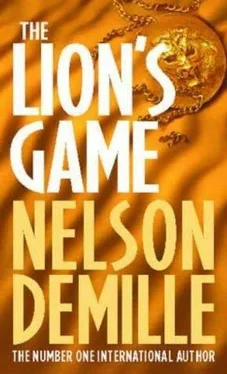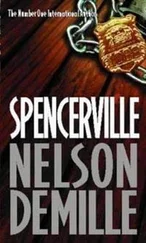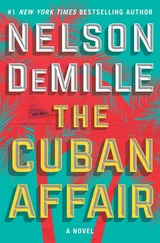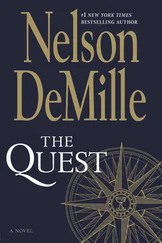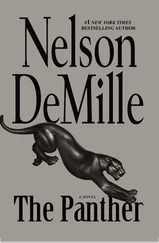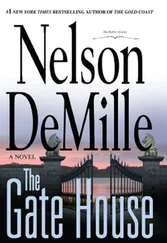In any case, these two very different men worked well together, and each had taught him something that the other barely comprehended. Asad preferred Malik, of course, but Boris could be counted on to tell the entire truth. In fact, Boris had told him privately, "Your Great Leader doesn't want another American bomb falling on his tent, so don't expect much help if you're caught. If you make it back here, you'll be treated well. But if it appears that you're trapped in America and can't get out, the next Libyan you see will be your executioner."
Khalil reflected on that, but dismissed it as old-line Soviet thinking. The Islamic fighters neither betrayed nor abandoned one another. God would not be pleased with that.
Khalil turned his attention back to the road. This was a big country, and because it was so big and diverse, it was easy to hide or to blend in, whichever one needed to do at the moment. But its size was also a problem, and unlike Europe, there were not many borders one could cross to escape. Libya was a long way from here. Also, Khalil hadn't fully realized that the English he understood was not the English spoken here in the South. But he recalled that Boris had mentioned this and told him that Florida English was closer to what Khalil could understand.
He again thought about Lieutenant Paul Grey, and recalled the photograph of the man's house, a very nice villa with palm trees. He thought, too, of General Waycliff's house. These two murderers had gone home and lived good lives with wives and children, after destroying the life of Asad Khalil without a passing thought. If, indeed, there was a hell, then Asad Khalil knew the names of three of its inhabitants-Lieutenant Steven Cox, killed in the Gulf, and Colonel William Hambrecht and General Terrance Waycliff, killed by Asad Khalil. If they were speaking to one another now, the last two could discuss with the first how they died, and they could all wonder who would be the next of their squadron mates that Asad Khalil would choose to join them.
Khalil said aloud, "Be patient, gentlemen, you will know soon enough. And soon after, you will all be reunited again."
The break was over, and we returned to our briefing room. Jim and Jane were gone, and in their place was an Arab-looking gentleman. I thought at first that this guy had gotten lost on his way to a mosque or something, or maybe he'd kidnapped Jim and Jane and was holding them hostage. Before I could put a choke hold on the intruder, he smiled and introduced himself as Abbah Ibin Abdellah, which he was nice enough to write on the chalkboard. At least his name wasn't Bob, Bill, or Jim. He did say, however, "Call me Ben," which fit in with the diminutive-naming system here.
Mr. Abdellah-Ben-wore a too-heavy tweed suit, not blue, and one of those checkered racing flags on his head. This was my first clue that he might not be from around here.
Ben sat with us and smiled again. He was about fifty, a little tubby, wore a beard, eyeglasses, thinning hair, good choppers, and smelled okay. Three demerits for that one, Detective Corey.
There was and there wasn't a little awkwardness in the room. I mean, Jack, Kate, Ted, and I were sophisticated, worldly, and all that. We'd all worked and socialized with Mideast types, but for some reason this afternoon there was a little tension in the air.
Ben began by saying, "What a terrible tragedy."
No one replied, and he continued, "I am a Special Contract Agent for the Bureau."
This meant that, like me, he was hired for some specialty, and I guessed it wasn't fashion consultant. At least he wasn't a lawyer.
He said, "The Deputy Director thought it might be a good idea if I made myself available to you."
Koenig asked, "Available for what?"
Mr. Abdellah looked at Koenig and replied, "I am a professor of Mideast political studies at George Washington University. My specialized area is the study of various groups who have an extremist agenda."
"Terrorist groups," Koenig prompted.
"Yes. For want of a better word."
I said helpfully, "How about psychotics and murderers? Those are better words."
Professor Abdellah looked cool, like he'd been through this before. He was well spoken, looked intelligent, and had a quiet manner about him. Nothing that happened yesterday was his fault, of course. But Ibin Abdellah had a tough job this afternoon.
He continued, "I myself am an Egyptian, but I have a good understanding of the Libyans. They're an interesting people, descended in part from the ancient Carthaginians. Afterward came the Romans, who added their bloodlines, and there have always been Egyptians in Libya. Following the Romans came the Vandals from Spain, who in turn were conquered by the Byzantines, who were conquered by the Arab people from the Arabian Peninsula, who brought the Islamic religion with them. The Libyans consider themselves Arab, but Libya has always had such a small population that every invading group has left their genes behind."
I misunderstood at first and thought he said "jeans," but then I got it.
Professor Abdellah got us up and running on Libyans, gave us some insights into Libyan culture, customs, and so forth. He had a whole bunch of handouts, including a glossary of words that were uniquely Libyan in case we cared, plus a glossary of Libyan cooking, which I didn't think I'd stick up in my kitchen. He said, "The Libyans love pasta. That's the result of the Italian occupation."
I loved pasta, too, so maybe I'd bump into Asad Khalil in Giulio's. Maybe not.
We received from the professor a short biography of Moammar Gadhafi and an online printout of a few Encyclopedia Britannica pages on Libya. He also presented us with a lot of pamphlets on Islamic culture and religion.
Professor Abdellah said to us, "Muslims, Christians, and Jews all trace their origins to the prophet and patriarch Abraham. The Prophet Muhammad is descended from Abraham's oldest son, Ishmael, and Moses and Jesus are descended from Isaac," he informed us, and added, "Peace be upon them all."
I mean, I didn't know whether to make the sign of the cross, face Mecca, or call my friend Jack Weinstein.
Ben went on about Jesus, Moses, Mary, the Archangel Gabriel, Muhammad, Allah, and so on. These guys all knew and liked each other. Incredible. This was interesting, but it wasn't getting me an inch closer to Asad Khalil.
Mr. Abdellah addressed Kate and said, "Contrary to popular myth, Islam actually elevates the status of women. Muslims do not blame women for violating the Forbidden Tree, as Christians and Jews do. Nor is their suffering in pregnancy and childbirth a punishment for that act."
Kate replied, coolly, "That's certainly an enlightened concept."
Undeterred by the Ice Queen, Ben continued, "Women who marry under Islamic law may keep their own family name. They may own property and dispose of property."
Sounds like my ex. Maybe she was a Muslim.
Ben said, "Regarding the veiling of women, this is a cultural practice in some countries, but does not reflect the teaching of Islam."
Kate inquired, "What about the stoning to death of women caught in adultery?"
"Also a cultural practice in some Muslim countries, but not in most."
I looked at my pamphlets to see if those countries were listed. I mean, what if Kate and I got sent to Jordan or someplace, and we got caught doing the dirty deed in our hotel? Would I be traveling home alone? But I couldn't find a list, and I thought it best not to ask Professor Abdellah for one.
Anyway, Ben prattled on a bit, and he was a very nice man, very polite, very knowledgeable, and really sincere. Nevertheless, I had the feeling I'd stepped through one of those two-way mirrors. And this was all being recorded and maybe videotaped by the boys in blue. This place was totally nuts.
Читать дальше
